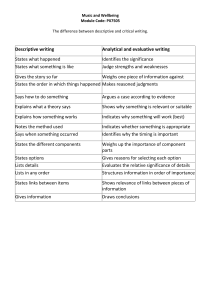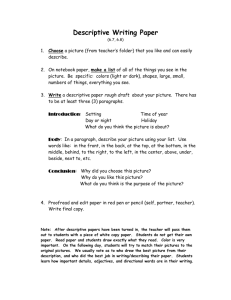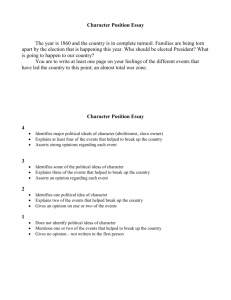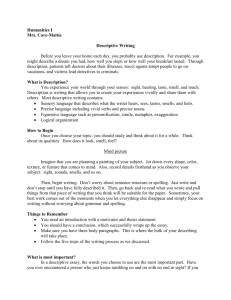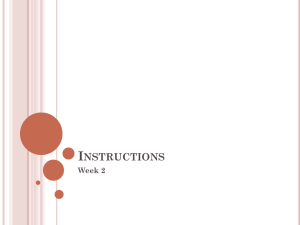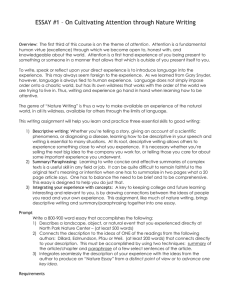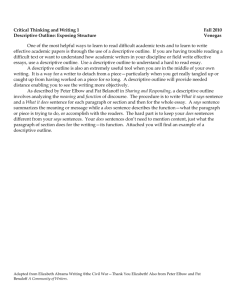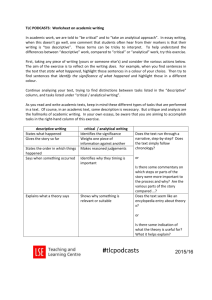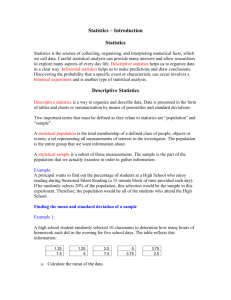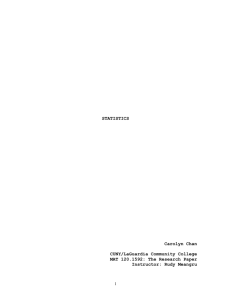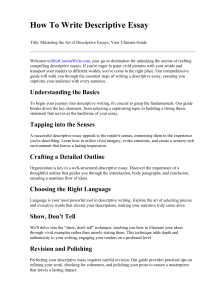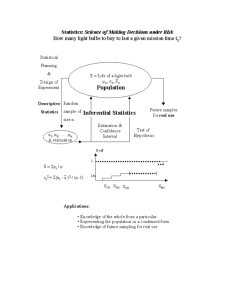Descriptive vs. Critical Writing: A Guide
advertisement
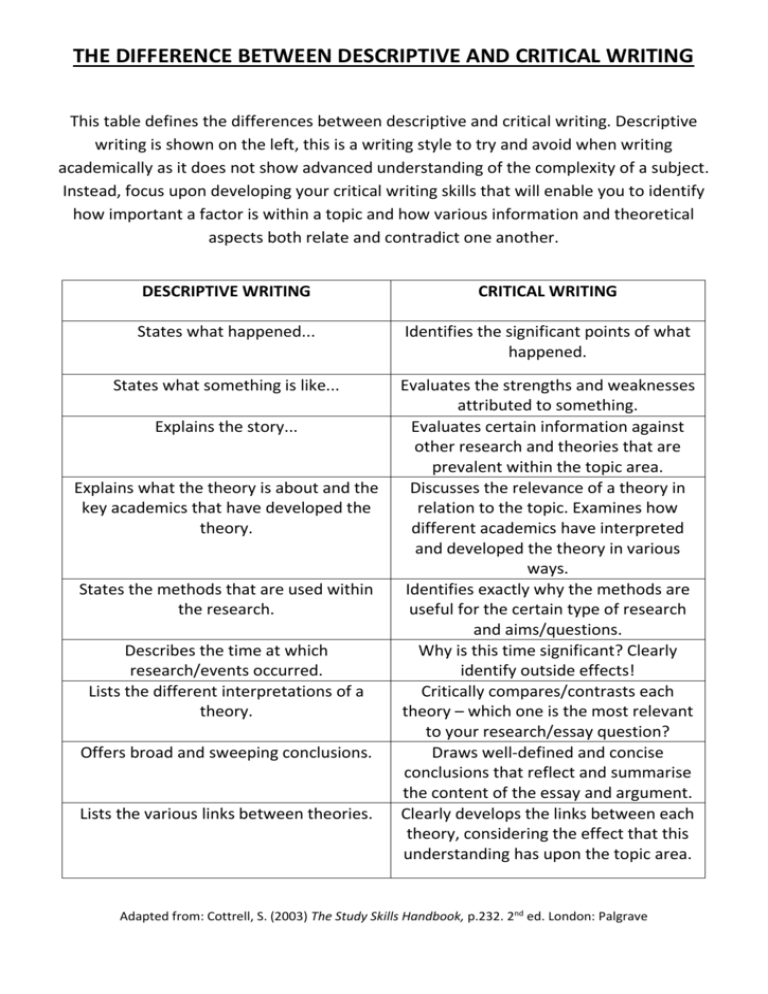
THE DIFFERENCE BETWEEN DESCRIPTIVE AND CRITICAL WRITING This table defines the differences between descriptive and critical writing. Descriptive writing is shown on the left, this is a writing style to try and avoid when writing academically as it does not show advanced understanding of the complexity of a subject. Instead, focus upon developing your critical writing skills that will enable you to identify how important a factor is within a topic and how various information and theoretical aspects both relate and contradict one another. DESCRIPTIVE WRITING CRITICAL WRITING States what happened... Identifies the significant points of what happened. States what something is like... Evaluates the strengths and weaknesses attributed to something. Evaluates certain information against other research and theories that are prevalent within the topic area. Discusses the relevance of a theory in relation to the topic. Examines how different academics have interpreted and developed the theory in various ways. Identifies exactly why the methods are useful for the certain type of research and aims/questions. Why is this time significant? Clearly identify outside effects! Critically compares/contrasts each theory – which one is the most relevant to your research/essay question? Draws well-defined and concise conclusions that reflect and summarise the content of the essay and argument. Clearly develops the links between each theory, considering the effect that this understanding has upon the topic area. Explains the story... Explains what the theory is about and the key academics that have developed the theory. States the methods that are used within the research. Describes the time at which research/events occurred. Lists the different interpretations of a theory. Offers broad and sweeping conclusions. Lists the various links between theories. Adapted from: Cottrell, S. (2003) The Study Skills Handbook, p.232. 2nd ed. London: Palgrave
